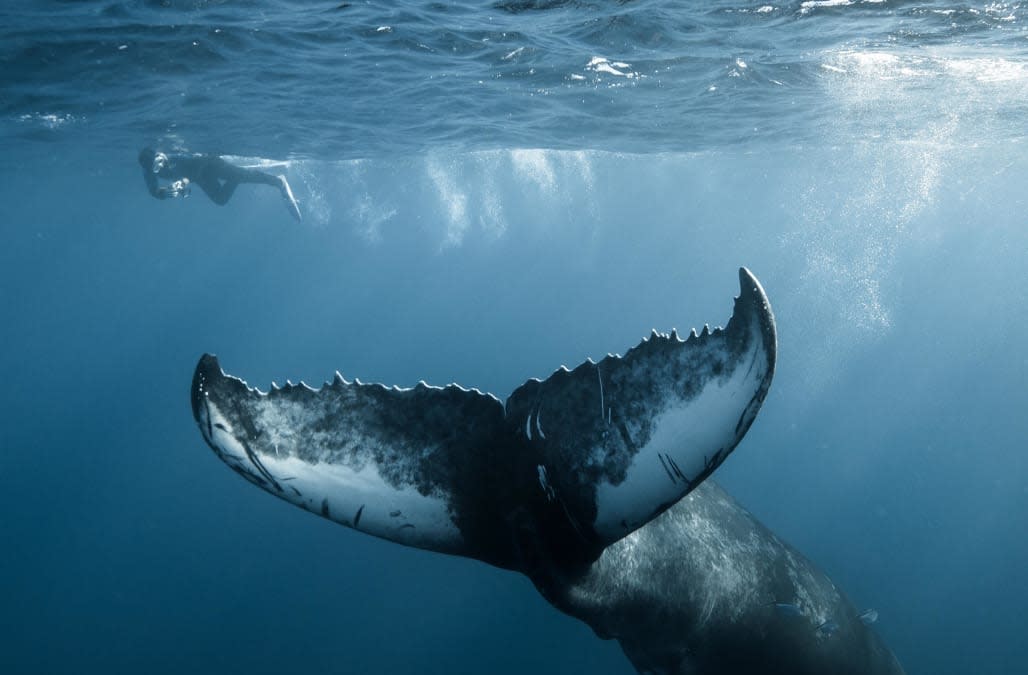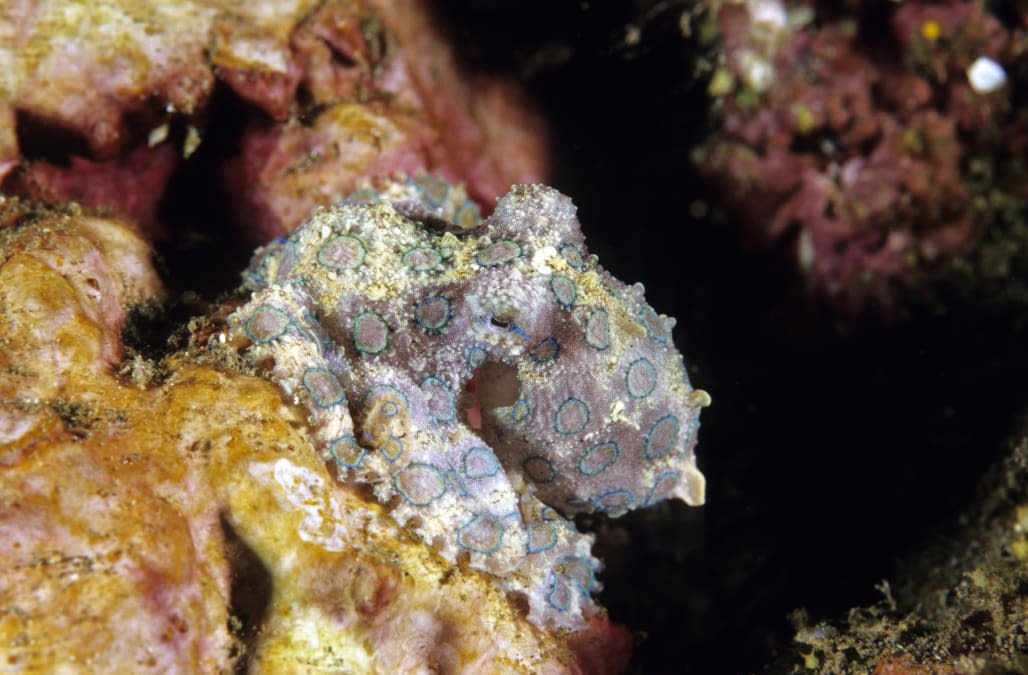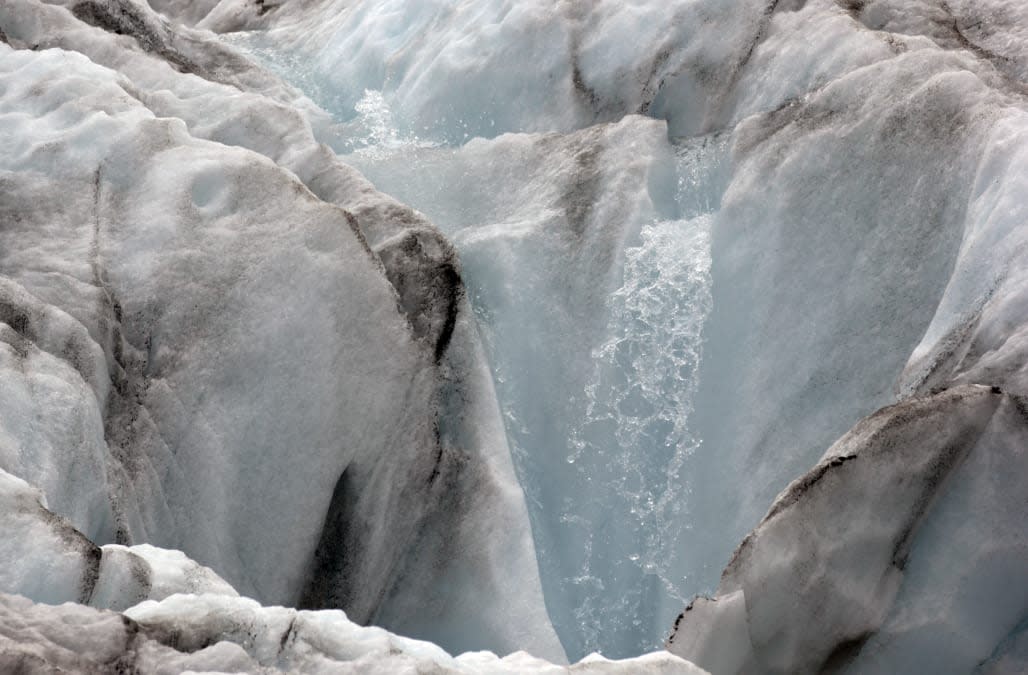7 mindblowing facts you never knew about our oceans
The ocean is an incredible place. Although more than 70 percent of the Earth's surface is covered by water, there is still so much we don't know about its depths. It is a world filled with equal parts beauty and mystery. Every day, we uncover something new about life under the sea.
Here are some things you may not know about our very own oceans.
1. We have better maps of Mars than we do of the ocean floors.

The ocean covers 70 percent of our Earth. However, nearly 95 percent its waters remain unexplored and unseen by human eyes, according to the National Ocean Service. It is nearly impossible to map the entirety of the ocean floor, mostly because modern technology is no match for the ocean's depths or pressure.
2. More people have been to the moon than to the bottom of the ocean's deepest point

Credit: NASA
In 1960, Lieutenant Don Walsh and Jacques Piccard traveled seven miles underwater to the Challenger Deep of the Mariana Trench in the Pacific Ocean. Walsh told The Daily Mail in 2010, "It's amazing to think that close to 1,000 people have been to the top of Everest and hundreds have been into space and just two have been to the deepest part of the ocean - and I'm the only one left."
3. 2/3 of marine species remain unknown

Researchers estimate there are 700,000 to 1 million different species living on our oceans. However, we have only identified about one-third of those. Although many are probably small organisms, such as crustaceans and mollusks, there may be up to eight unidentified species of whales and dolphins as well, according to Discovery.
4. The giant squid was largely considered to be a myth up until the past decade.
In 2004, a group of researchers in Japan became the first to capture footage of a giant squid living in the wild. Despite being the largest invertebrate known to man, the giant squid remains elusive to scientists and researchers. Their deep sea territory has made them especially hard for experts to study and gather knowledge on the species. The largest of these creatures ever found was measured 59 feet long and weighed nearly an entire ton.
5. Looks can be deceiving -- especially underwater. This tiny octopus may look adorable, but it is actually one of the most lethal sea creatures known to man.

Don't let its size fool you, this octopus has looks that could kill -- literally. At barely the size of a pencil, the blue ringed octopus packs a brutally lethal dose of venom in its tiny suckers. But luckily, unless you live near Australia, Japan or India, you shouldn't have to worry about coming across these little creatures.
6. The largest waterfall is found in the ocean -- but you will probably never see it
Tallest #waterfall in the #world#Denmark Strait cataract is an #underwater#waterfalls#amazingpic.twitter.com/y02HEH4oMS
— Sucheta Mandal (@SuchetaMandal) January 18, 2014
The Denmark Strait cataract is roughly 20 times the size of Niagara Falls and is the biggest waterfall on earth. Located miles underneath the Atlantic Ocean between Greenland and Iceland. The waterfall is a result of temperature differentials between water from the Arctic and Greenland Sea. According to Conde Nast Traveler, the Denmark Strait cataract drops nearly 11,500 feet -- more than three times the height of the world's tallest waterfall, Angel Falls, in Venezuela. It also carries 175 million cubic feet of water per second, which is nearly two thousand more the amount carried by Niagara Falls.
7. If all the ice glaciers and ice sheets melted, the sea level would rise by about 80 meters, which is roughly the height of a 26-story building

According to the NRDC, rising temperatures around the globe are speeding up the melting process of glaciers and ice caps everywhere. The global sea level has risen between four and eight inches in the past 100 years -- but the rate is only accelerating.
Watch below to find out where the ocean gets its distinctive smell:

Check out some more deep sea creatures, courtesy of NOAA:
More from AOL.com:
Local McDonalds restaurant throws surprise birthday party for 93-year-old widower
Millions of spiders wreak havoc on Tennessee town
Canadian landscaper discovers he is king of African tribe in Ghana





